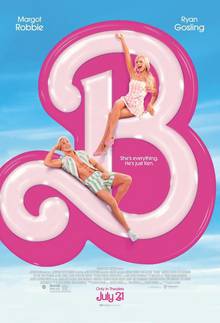At a time when movies with experimental genres sent a shiver down the spines of the film fraternity, one man emerged to break all stereotypes, daring to leave his mark with a novel idea in his first film. Since then, he has never failed to live up to the expectations the people. Often hailed as the next 'Mani Ratnam' of Tamil Cinema, Karthik Subbaraj, who graced Agni 2016 took time out for the Guindy Times amidst the roar of crowds and blaring music and interact with our reporters backstage.
How does it feel to have sparked the new trend of short-film directors making their foray into the film industry?.
If you want to become a filmmaker you need to understand the nuances and technicalities. More than choosing a good script, making it into a good movie is where the challenge lies. To learn the craft of making a good movie there are a lot of ways such as film school, assisting a director, etc. I tried joining a film school but I couldn’t. I tried assisting a director but things didn’t fall in place. That was when I decided to make short films. That’s what has got me here.
There are two ways to see the art of short film making. It can act as a medium for learning and with the advent of digital technology, all you need is a camera and good editing software to try your hand at it. Yet, after a point your short films need to be professional. If not, it is difficult to make mainstream movies. You need to take it seriously as a film itself. That will definitely help you make a mark in the big screen.
Given a choice to go back in time, will you choose to make short films again or will you assist a renowned director?
I would have assisted a filmmaker for one film. Had I assisted someone I would have had experience before directing Pizza. In that way, it would have prepared me better.
You broke a lot of stereotypes in the film industry with the films you brought to screen. Was it a conscious decision to make movies which are different from the mainstream clichéd 'masala' movies?
We grew up watching films, especially Tamil films. When you watch these movies there are some you get attached to. You want to make films of the same standard as those which influenced you. There are always some films which you don’t like, the ones you call stereotypes. I knew I didn’t come here to make such films. I want to tell stories I want an audience for, and which I would like to watch on the big screen.
Tell us one movie which had an impact on you as a kid and which inspired you to come into the film industry.
I am a huge fan of Rajnikanth. I attribute my passion for the film industry to his movies. Once I started watching other movies, like those of Mani Ratnam sir, Bala sir and Balumahendra sir, I slowly understood the medium.
What is the secret behind your success?
(Laughs) There is no secret or formula as such. I just bring out scripts which move me. I don’t give much thought to constraints such as commercial elements, etc.
Where do you get your ideas from? Tell us about your different sources of inspiration.
It is difficult to state a specific place. Every movie I have done has a story behind it. Pizza came out of budget constraints. Jigarthanda was actually the first film I scripted, but I couldn’t find a producer. It had been nearly one and a half years and I was desperate to do a feature film. So I thought about doing a very low budget film taking place at a single location, which is when the story of Pizza came to me. Jigarthanda represents the people of Madurai. As a native of Madurai I saw a lot of rowdies and heard a lot of stories associated with them. These stories and people inspired me to write the script. Iraivi is about the women in my life such as my akka, chithi, amma whose life fit in a template irrespective of their background. My next script is about the things which inspire me on a global level.
Did you come up with the idea to promote short films through your venture 'Bench Flix' because you entered the industry through short films?
Short films should not be seen as a separate entity from feature films. If you are called as a filmmaker, you make films irrespective of the duration. Even if you do a good film for one minute you are called a filmmaker. Right from the time I was a software engineer I wanted to make independent films. Not everyone who aspires to do a feature film can find an actor who will agree, a producer who will listen to their script and agree to finance it and a theatre to release a feature film. But if you still want to tell stories and be a filmmaker, I see independent films as a very strong medium to express your creativity.
However, I don’t think there is much scope. I have done around 15 short films but I didn’t make even a single rupee out of them. But there is a market in short films that someone needs to come and explore, including how to generate revenue out of them. That is exactly what we are trying to execute through 'Bench Flix'.
How was the transition from short films to mainstream films?
When you start taking short films seriously and professionally, it is not very different from a feature film. The only difference you may find is with respect to narrating a script and the number of days of shoot. Other than that all the things hold good for both short films and feature films.
Do you think the politics involved in making a feature film are more compared to short films?
There can’t be much politics while doing a short film because it is going to be just you and your friends who will pool in the money to produce it. When there isn’t much constraint to get back the money invested there isn’t much politics. In other words, when there’s less money involved, there’s less politics.
There are a lot of allegations against you by the producer’s council and a lot of rumours doing the rounds. Do you have anything to say about it?
There is no rumour as such. When Iraivi came, the antagonist was a producer who ill-treats the director, which didn’t go down well with the producers’ council. There were rumours that they wanted to ban me from making films and such. But nothing came to me directly. It is just a film with a fictional character. They realised that there was no point in taking it personally. Every movie has a villain and the villain has a job.
There were controversies surrounding your movies before or after its release. Why do you think this occurs?
I honestly don’t know. In Jigarthanda there was some issue which came up with the censor board. They wanted to make it as a ‘U’ Certificate movie to get tax exemption. But I was very clear right from the first day that this wasn’t a ‘U’ Certificate movie because it is about a gangster and there was murder involved. It is very difficult to cut a movie in order to get a ‘U’ Certificate after the movie has been made.
You used metaphors in Iraivi such as the rain signifying liberation of women. Any reason behind the usage of metaphors?
I feel that films should convey more through visuals and metaphors highlight the art of visual story telling. I am really fond of communicating a story through metaphors and I tried it in Iraivi. I am glad that it worked.
The Hindi remake of Pizza didn’t do as well in the box office as its Tamil counterpart. Where do you think did it go wrong?
I think they tried to add more details. Pizza ended on an abstract note. We hadn’t answered all the questions that arose in the movie. I think the problem was they tried to give answers to all the questions in the movie which turned the film into a normal horror flick. Pizza is not a normal horror film, but a heist movie. Turning it into something else didn’t work.
Any movie you would like to remake now?
Oh, there are many! But I would not want to ruin good movies by remaking them, so I haven't tried it out.
Do you have any reasons behind your fascination for the colour black?
No reasons exactly. I simply love the colour.
The Guindy Times is grateful to Karthik Subbaraj for spending valuable time off his schedule for an interview. GT also thanks the Arts Society for this wonderful opportunity.





